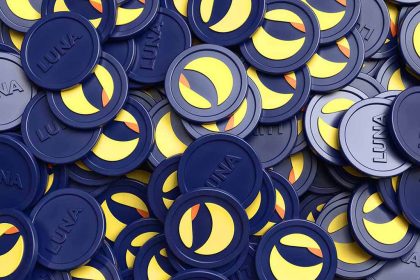The study, which was a collaboration between CoinDesk Korea and blockchain security firm Uppsala Security, used on-chain data forensic methods to look into Terra’s collapse following the incident on May 7.
Terra Labs is yet again the subject of another accusation amid the controversy surrounding the fall of the algorithm-based stablecoin project TerraUSD (UST). After a widely publicized accusation was made describing the crash of Terra as an inside job, a new study now claims Terra Labs and owner Do Kwon had enough assets in Tether (USDT) and TerraUSD to carry out illegal activities.
According to a story published by CoinDesk Korea on June 28, an investigation revealed that Terra Labs had nearly $3.6 billion in USDT and UST that might have been utilized for fraud for the present LUNC (the old LUNA), price manipulation, or money laundering in centralized and decentralized finance (DeFi) exchanges.
The study, which was a collaboration between CoinDesk Korea and blockchain security firm Uppsala Security, used on-chain data forensic methods to look into Terra’s collapse following the incident on May 7. The duo also tracked the movement of $3.6 billion in hidden cash using additional on-chain data analysis, in addition to uncovering that the collapse may have been the result of an inside job.
According to the findings of the study, CEO Do Kwon has revealed utilization information for Terra (LUNA), UST, and Bitcoin (BTC) through his SNS or Terra Foundation and that in any event that the UST (Teraa USD) collapsed, the company would safeguard prices with the funds owned by them.
Analysts, however, examined the on-chain data and found that the source and usage history for the crypto wallets that Terraform Labs and Luna Foundation Guard directly hold or manage are unclear (LFG).
The slush funds they subsequently uncovered after their examination amounted to almost $3.6 billion in UST and USDT. Additionally, the analysts found evidence that the previous LUNA (now LUNC) in DeFi and centralized exchanges may be utilized for price manipulation and money laundering.
The investigation also compiled all the on-chain data that the researchers used in tracking the flow of about $3.6 billion in funds from an unknown source, including an unknown wallet address (0x8d47f08ebc5554504742f547eb721a43d4947d0a).
The study also revealed that Terraform Labs and Luna Foundation Guard (LFG) had transferred $7.4 billion in USDT, USDC, and UST into two Binance wallets, which were later discovered to be held or managed by LFG.
An unidentified LFG exchange was also said to have received 300 million USDTs on May 6, a day before the crash of LUNC. The funds were subsequently transferred to another Binance exchange wallet, which made them untrackable using on-chain data analysis.
After the investigations, Patrick Kim, CEO of Uppsala, tasked authorities with the need to “check the internal data of centralized exchanges such as Binance, Coinbase, Huobi, and KuCoin,” which have been used to transfer the suspicious funds.
next